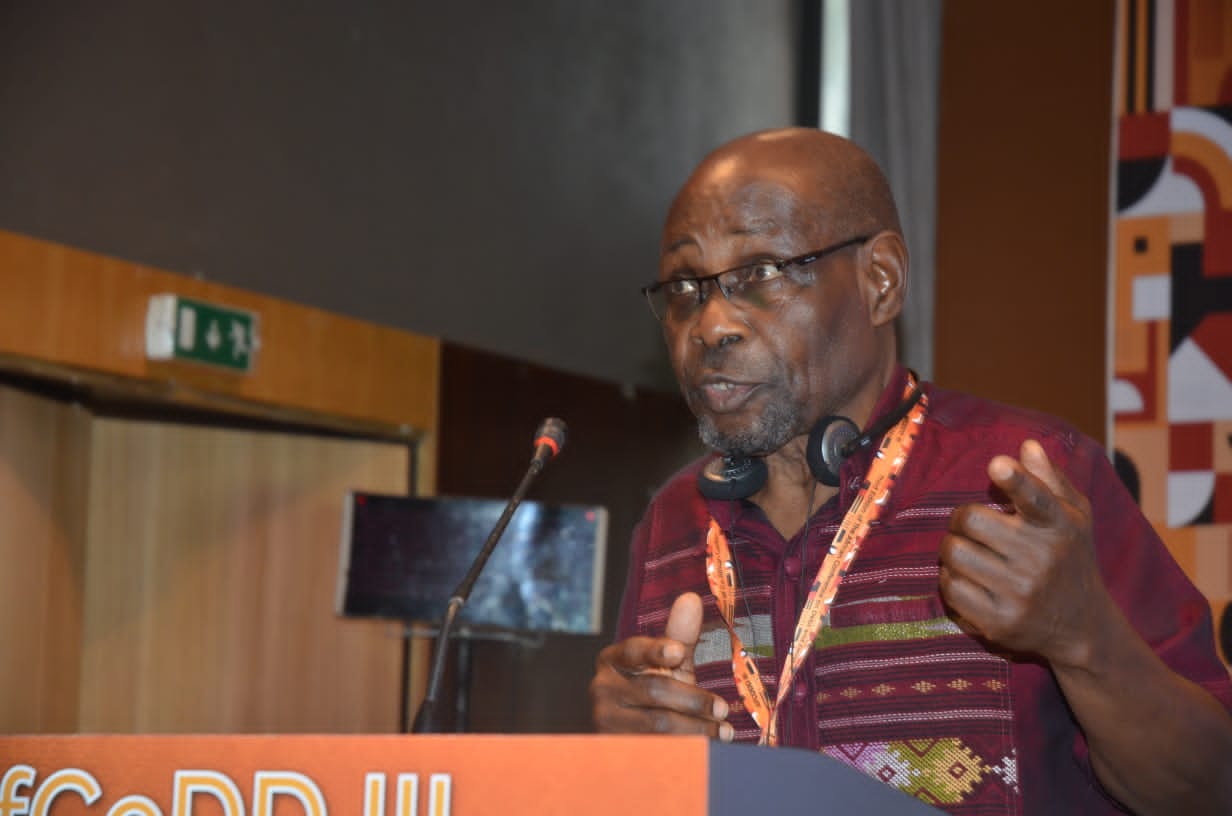🌍💰 AfCoDD III: Analyzing African Debt Sustainability in the Face of Dependency and Underdevelopment
As Africa grapples with recurrent debt crises and seeks external assistance, Kapijimpanga's presentation delves into the pressing questions surrounding Africa's debt management.
DAKAR, Senegal — Opa Kapijimpanga, Founder of the African Forum and Network on Debt and Development (AFRODAD)), ignited a profound conversation on the intricacies of debt sustainability in Africa within the context of dependency and underdevelopment, writes Winston Mwale.
His thought-provoking analysis, presented during the ongoing 3rd African Conference on Debt and Development (AfCoDD III), challenges the recurring debt crises facing the continent and explores the path toward long-term debt sustainability.
Introduction:
As Africa grapples with recurrent debt crises and seeks external assistance, Kapijimpanga's presentation delves into the pressing questions surrounding Africa's debt management.
He highlights that this new crisis, emerging just a decade after the 1980s debt crisis, raises concerns about the potential for a third debt crisis and, more broadly, whether Africa will continue to experience a never-ending cycle of debt crises.
To tackle these questions and address the central theme of AfCoDD III, "Can Africa achieve Debt sustainability under neoliberalism?", Kapijimpanga embarks on a journey through dependency and underdevelopment theories, firmly rooted in the Center-Periphery paradigm, offering profound insights into Africa's path forward.
The paper suggests that to genuinely explore debt sustainability, Africa must break free from the chains of dependency and underdevelopment that have persisted since colonial times.
The key lies in disentangling from the institutions and processes that have ensnared the continent in this mode, with a resounding call for Africans to seize control of their transformation journey.
Theoretical Framework:
The paper navigates through the theoretical landscape, underscoring the critical role of development theories in shedding light on societal realities and guiding transformative efforts. It harks back to the influence of structuralist schools in the 1960s, which critiqued capitalism and colonization while advocating for socialism as a viable alternative.
As many African nations gained independence, they embraced elements of this approach, aspiring for modernization and self-reliance. However, this momentum was abruptly interrupted by the rise of neoliberalism, driven by the Washington Consensus and enforced through Structural Adjustment programs by the World Bank and IMF.
The urgent need for a transformative paradigm beyond neoliberalism emerges as a central tenet of Africa's developmental aspirations.
Analyzing Debt Crises and Resolutions:
The paper embarks on a comprehensive analysis of the 1980s debt crisis and the subsequent resolution process. It scrutinizes the development fervour that followed World War II, the instrumental role of social movements, and the intricate mechanisms of debt relief. Importantly, it underscores the significant shifts in Africa's contextual landscape post-2011, which have culminated in the current debt crisis.
The Call for Transformation: Kapijimpanga's analysis crescendos into a passionate call for fundamental transformation. The paper contends that Africa's pursuit of genuine debt sustainability demands a bold departure from the chains of dependency and underdevelopment. Liberation from ideas, institutions, and processes that stifle African development is articulated as an imperative.
It is posited that Africa must transcend its peripheral status within global capitalism and ascend to a position of decision-making and self-determination.
As AfCoDD III unfolds, Kapijimpanga's illuminating analysis serves as a rallying point for urgent and robust discussions on Africa's roadmap to debt sustainability and authentic empowerment.
The clarion call for transformation resonates profoundly as Africa seeks to break free from dependency, surmount underdevelopment, and forge a lasting, sustainable future.




